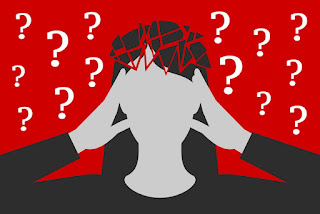Costello, T. H., Newton, C., Lin, H., & Pennycook, G.
(2023, August 6).
Abstract
Intellectual humility (IH) is commonly defined as recognizing the limits of one’s knowledge and abilities. However, most research has relied entirely on self-report measures of IH, without testing whether these instruments capture the metacognitive core of the construct. Across two studies (Ns = 898; 914), using generalized additive mixed models to detect complex non-linear interactions, we evaluated the correspondence between widely used IH self-reports and performance on calibration and resolution paradigms designed to model the awareness of one’s mental capabilities (and their fallibility). On an overconfidence paradigm (N observations per model = 2,692-2,742), none of five IH measures attenuated the Dunning-Kruger effect, whereby poor performers overestimate their abilities and high performers underestimate them. On a confidence-accuracy paradigm (Nobservation per model = 7,223 - 12,706), most IH measures were associated with inflated confidence regardless of accuracy, or were specifically related to confidence when participants were correct but not when they were incorrect. The sole exception was the “Lack of Intellectual Overconfidence” subscale of the Comprehensive Intellectual Humility Scale, which uniquely predicted lower confidence for incorrect responses. Meanwhile, measures of Actively Open-minded Thinking reliably predicted calibration and resolution. These findings reveal substantial discrepancies between IH self-reports and metacognitive abilities, suggesting most IH measures lack validity. It may not be feasible to assess IH via self-report–as indicating a great deal of humility may, itself, be a sign of a failure in humility.
GeneralDiscussion
IH represents the ability to identify the constraints of one’s psychological, epistemic, and cultural perspective— to conduct lay phenomenology, acknowledging that the default human perspective is (literally) self-centered (Wallace, 2009) — and thereby cultivate an awareness of the limits of a single person, theory, or ideology to describe the vast and searingly complex universe. It is a process that presumably involves effortful and vigilant noticing – tallying one’s epistemic track record, and especially one’s fallibility (Ballantyne, 2021).
IH, therefore, manifests dynamically in individuals as a boundary between one’s informational environment and one’s model of reality. This portrait of IH-as-boundary appears repeatedly in philosophical and psychological treatments of IH, which frequently frame awareness of (epistemic) limitations as IH’s conceptual, metacognitive core (Leary et al., 2017; Porter, Elnakouri, et al., 2022). Yet as with a limit in mathematics, epistemic limits are appropriately defined as functions: their value is dependent on inputs (e.g., information environment, access to knowledge) that vary across contexts and individuals. Particularly, measuring IH requires identifying at least two quantities— one’s epistemic capabilities and one’s appraisal of said capabilities— from which a third, IH-qua-metacognition, can be derived as the distance between the two quantities.
Contemporary IH self-reports tend not to account for either parameter, seeming to rest instead on an auxiliary assumption: That people who are attuned to, and “own”, their epistemic limitations will generate characteristic, intellectually humble patterns of thinking and behavior. IH questionnaires then target these patterns, rather than the shared propensity for IH which the patterns ostensibly reflect.
We sought to both test and circumvent this assumption (and mono-method measurement limitation) in the present research. We did so by defining IH’s metacognitive core, functionally and statistically, in terms of calibration and resolution. We operationalized calibration as the convergence between participants’ performance on a series of epistemic tasks, on the one hand, and participants’ estimation of their own performance, on the other. Given that the relation between self-estimation and actual performance is non-linear (i.e., the Dunning-Kruger effect), there were several pathways by which IH might predict calibration: (1) decreased overestimation among low performers, (2) decreased underestimation among high performers, or (3) unilateral weakening of miscalibration among both low and high performers (for a visual representation, refer to Figure 1). Further, we operationalized epistemic resolution by assessing the relation between IH, on the one hand, individuals’ item-by-item confidence judgments for correct versus incorrect answers, on the other hand. Thus, resolution represents the capacity to distinguish between one’s correct and incorrect judgments and beliefs (a seemingly necessary prerequisite for building an accurate and calibrated model of one’s knowledge).

